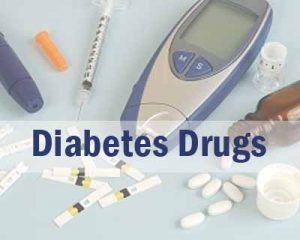- Home
- Editorial
- News
- Practice Guidelines
- Anesthesiology Guidelines
- Cancer Guidelines
- Cardiac Sciences Guidelines
- Critical Care Guidelines
- Dentistry Guidelines
- Dermatology Guidelines
- Diabetes and Endo Guidelines
- Diagnostics Guidelines
- ENT Guidelines
- Featured Practice Guidelines
- Gastroenterology Guidelines
- Geriatrics Guidelines
- Medicine Guidelines
- Nephrology Guidelines
- Neurosciences Guidelines
- Obs and Gynae Guidelines
- Ophthalmology Guidelines
- Orthopaedics Guidelines
- Paediatrics Guidelines
- Psychiatry Guidelines
- Pulmonology Guidelines
- Radiology Guidelines
- Surgery Guidelines
- Urology Guidelines
Golden drug SGLT2 Inhibitors may lead to Fournier Gangrene, confirms post marketing review

The sodium-glucose cotransporter-2 (SGLT2) Inhibitors have been in discussion due to its possible association with Fournier Gangrene (FG). It has been now confirmed that use of SGLT2 Inhibitor is linked to a rare urologic emergency called Fournier Gangrene. A review of spontaneous postmarketing cases published in the Annals of Internal Medicine has reported that the US Food and Drug Administration (FDA) has identified 55 unique cases of FG in patients receiving Sodium-glucose cotransporter-2 (SGLT2) Inhibitor between 1 March 2013 and 31 January 2019.
Sodium-glucose cotransporter-2 (SGLT2) Inhibitors is a commonly prescribed medicine for the treatment of type-2 diabetes patients. The drug is given to type 2 diabetic patients to control their blood sugar levels. The SGLT2 inhibitors are termed as golden drugs because they have shown an additional overwhelming beneficial effect in lowering the risk of end-stage kidney disease.
The US Food and Drug Administration had previously made a safety announcement on 20.08.2018 wherein the FDA has affirmed that cases of a rare but serious infection of the genitals and area near the genitals have been reported with this class of drug. Taking a cue from the FDA warning the CDSCO India has also issued safety letter to its state counterparts to direct manufacturers of SGLT2 inhibitors such as Canagliflozin, Dapagliflozin, Empagliflozin, to include a safety warning in the packages.
Read more: Manufacturers of SGLT2 inhibitor Drugs to have to INCLUDE safety WARNING in package: CDSCO
The present study was meant to describe and compare reported cases of FG in diabetic adults receiving treatment with Sodium-glucose cotransporter-2 (SGLT2) Inhibitors or other antiglycemic agents. The study reported that 55 unique cases of FG in patients receiving SGLT2 inhibitors between 1 March 2013 and 31 January 2019 identified by the US FDA.
Please also read-PERSPECTIVE: Diabetes management with SGLT2 inhibitors changing directions- Dr Anoop Misra, Dr Amrita Ghosh
The key finding of the study are:
- The patients ranged in age from 33 to 87 years; 39 were men, and 16 were women.
- Time to onset after initiation of SGLT2-inhibitor therapy ranged from 5 days to 49 months.
- All patients had surgical debridement and were severely ill.
- Reported complications included diabetic ketoacidosis, sepsis or septic shock, and acute kidney injury.
- Eight patients had fecal diversion surgery, 2 patients developed necrotizing fasciitis of a lower extremity that required amputation, and 1 patient required a lower-extremity bypass procedure because of gangrenous toes.
- Three patients died. For comparison, the FDA identified 19 FG cases associated with other antiglycemic agents between 1984 and 31 January 2019: metformin, insulin glargine, short-acting insulin, sitagliptin plus metformin, and dulaglutide.
- These patients ranged in age from 42 to 79 years; 12 were men, and 7 were women. Two patients died.
The authors concluded that FG is a newly identified safety concern in patients receiving Sodium-glucose cotransporter-2 (SGLT2) Inhibitors and advised the physicians prescribing these agents to be aware of this possible complication and have a high index of suspicion to recognize it in its early stages.
To know more about the study, please click on the link
DOI: 10.7326/M19-0085

Disclaimer: This site is primarily intended for healthcare professionals. Any content/information on this website does not replace the advice of medical and/or health professionals and should not be construed as medical/diagnostic advice/endorsement or prescription. Use of this site is subject to our terms of use, privacy policy, advertisement policy. © 2020 Minerva Medical Treatment Pvt Ltd